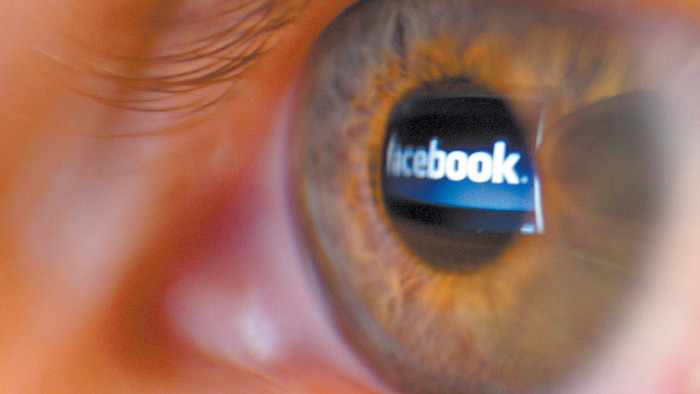Facebook reels in advertising cash

Simply sign up to the US & Canadian companies myFT Digest -- delivered directly to your inbox.
Facebook is taking money from advertisers like sweets from babies. The social network celebrated its 10th birthday by showing off its latest set of delectable numbers: a revenue rise of 76 per cent, earnings rocketing by 82 per cent and an extra $16bn added to its market capitalisation in an after-hours trading party.
The internet company successfully lured marketers with a recipe of adding deep data analytics to 1bn-plus users, helping it trounce expectations for three quarters running.
Robert Peck, an analyst at SunTrust Robinson Humphrey, said advertisers are buying more expensive Facebook adverts because they are seeing a strong return on investment.
“That advertisers are driving price increases is just amazing to me,” he said. “To have revenue acceleration at the same time as expanding margins, especially on a platform this big, is unique.”
Facebook first enticed big brands with the opportunity to reach its vast user base for free, offering them pages which, if only they got users to “like”, they could use as promotional material without spending a penny.
But as advertisers pile on to the network – total revenues hit $7.9bn last year – their appetites increased by even more detailed targeting, they have to pay to be seen.
Rob Leathern, chief product officer of social media marketing firm Brand Networks, said advertisers are facing more pressure to buy ads as unpaid posts are seen less often by users.
“All social networks are getting more efficient, and they need to balance volume and nature of promotional messages along with users’ preferences,” he said.
“Demand means that other advertisers will pay to reach those consumers, so there will be fewer free lunches,” he added. “On the supply side, that means that brands who create the most compelling content will definitely get organic distribution. But the truth is that most of the regular tweets/posts that brands produce are just not very interesting.”
Facebook is now second to Google in the global advertising market, the US digital advertising market and the worldwide mobile advertising market, according to data from eMarketer. After looking like it could flail on mobile, it enjoyed an 18 per cent share of the worldwide mobile ad spend in 2013, a market that grew almost 90 per cent last year.
Google is still by far the most dominant player in online advertising but Jan Rezab, chief executive of social analytics company Socialbakers, said in some areas marketers found Facebook better than Google.
“Google assumes you like this and like that based on browsing but Facebook knows because it is connected to you,” he said, adding it knows not just what pages you like but what content you actively engage with, for example, by commenting on it.
Facebook can also help a market that Google has traditionally owned: small businesses. Facebook now helps small businesses advertise to existing customers and people who look like them by letting them upload their customer base. Mr Rezab said it was “more natural” for small businesses to communicate with their customers socially than by search.
But Facebook still has to watch its back for other social sites – which also have treasure troves of information about their users – coming up behind it. It may have by far the largest user base but Twitter is gaining share in the advertising market and Pinterest, the online scrapbooking site, is already referring higher spending traffic to ecommerce companies before it has even started taking paid adverts, according to data from the Adobe Digital Index.
The company knows its challenge is to keep the momentum going, as advertisers could prove fickle and flock to the latest social media darling. This is particularly the case for companies such as Twitter and Snapchat, which are luring teenage users away from the site.
On its earnings call, Facebook said it is busy developing analytics to show bricks-and-mortar retailers that social adverts can drive in-store sales. It is opening more offices in Asia as it pushes advertising sales in less developed markets and experimenting with adverts on Instagram, the Facebook-owned photo-sharing app particularly popular with teenagers.
It has previously announced it is rolling out video adverts, which automatically play in feeds, and has hinted at creating a mobile advertising network that allows it to use its data to serve advertisers on other sites.
Mr Peck said the company’s plans were all “intriguing” and the size and the engagement rates of its audience were – for now – incomparable. He said the more than 750m people logging on to Facebook on their smartphone every day is “astounding”.
“It is testament to the power of the platform,” he said.
Comments